Žurnal in English
HOW YOUNG PEOPLE LIVE IN UKRAINE: Uncertainty, Fear of Missile Attacks, Mobilization...
It's been over ten years since the start of the Russo-Ukrainian war, and two and a half years since the full-scale Russian invasion of Ukraine. The lives of young people in Ukraine have changed significantly. Recently, a group of young Ukrainians visited Sarajevo, and two of them, who live and work in Kyiv, spoke with Žurnal journalists about the current situation in Ukraine, how the war has changed their lives, its impact on society, and especially on young people...
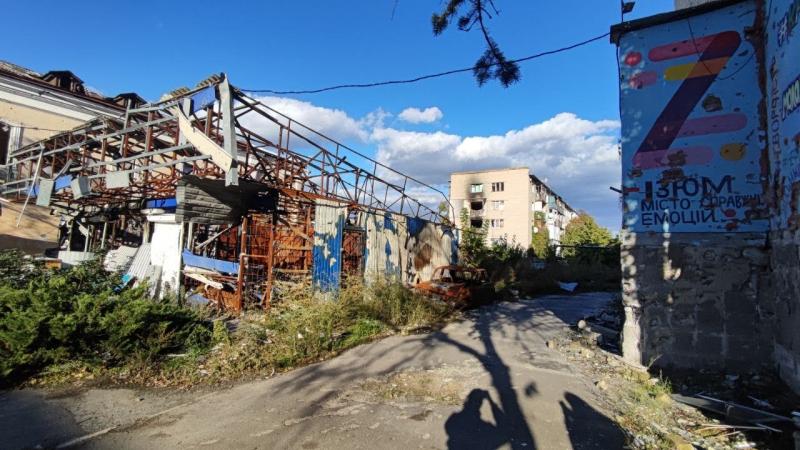
For almost two and a half years, Ukraine has been resisting the full-scale Russian invasion. Today, the situation in Ukraine is different from the first few months of 2022, yet fierce battles continue daily. In addition to the fighting on the eastern front, Ukrainian cities in central and western parts of the country, such as Kyiv and Lviv, are also targets of Russian air attacks.
Although many might assert that the Russian-Ukrainian conflict began in February 2022, for Ukrainians, the war has been ongoing for over 10 years, starting with the Russian annexation of Crimea and the beginning of the conflict in the Donbas region in eastern Ukraine.
Among those affected are Iryna Shostak and Tetiana Peresunko, who recently visited Sarajevo as part of a project by the WARM Foundation. This foundation invited a group of Ukrainian media workers and artists to Sarajevo for ten days, aiming to exchange experiences on how wartime events can impact post-war society.
 KAKO ŽIVE MLADI U UKRAJININeizvjesnost, strah od raketnih napada, mobilizacija...
KAKO ŽIVE MLADI U UKRAJININeizvjesnost, strah od raketnih napada, mobilizacija...
Journalists from Žurnal hosted Iryna and Tetiana, and we took the opportunity to discuss the situation in Ukraine, how the war has changed their lives, its impact on society, and particularly on young people.
Iryna and Tetiana live and work in Kyiv, at a media agency. We began by asking them what life is currently like in the Ukrainian capital.
"In Kyiv, people try to live their ordinary lives. But, of course, these are ordinary lives with daily resistance. We try to collect and donate money for defence, we coordinate volunteer groups... Everyone I know has done something in this war – some are directly involved in fighting, and others try to contribute in different ways. For example, my friend returned from the USA three days after the invasion and soon started a foundation that dealt with making medical supplies for soldiers. We always have the war in mind. Even when we feel good, when we manage to distract ourselves a bit from the war, the frequent air raid sirens and curfews bring us back to reality. But otherwise, we try to live, work, have food, and restaurants and cafes are open…" Iryna tells us.
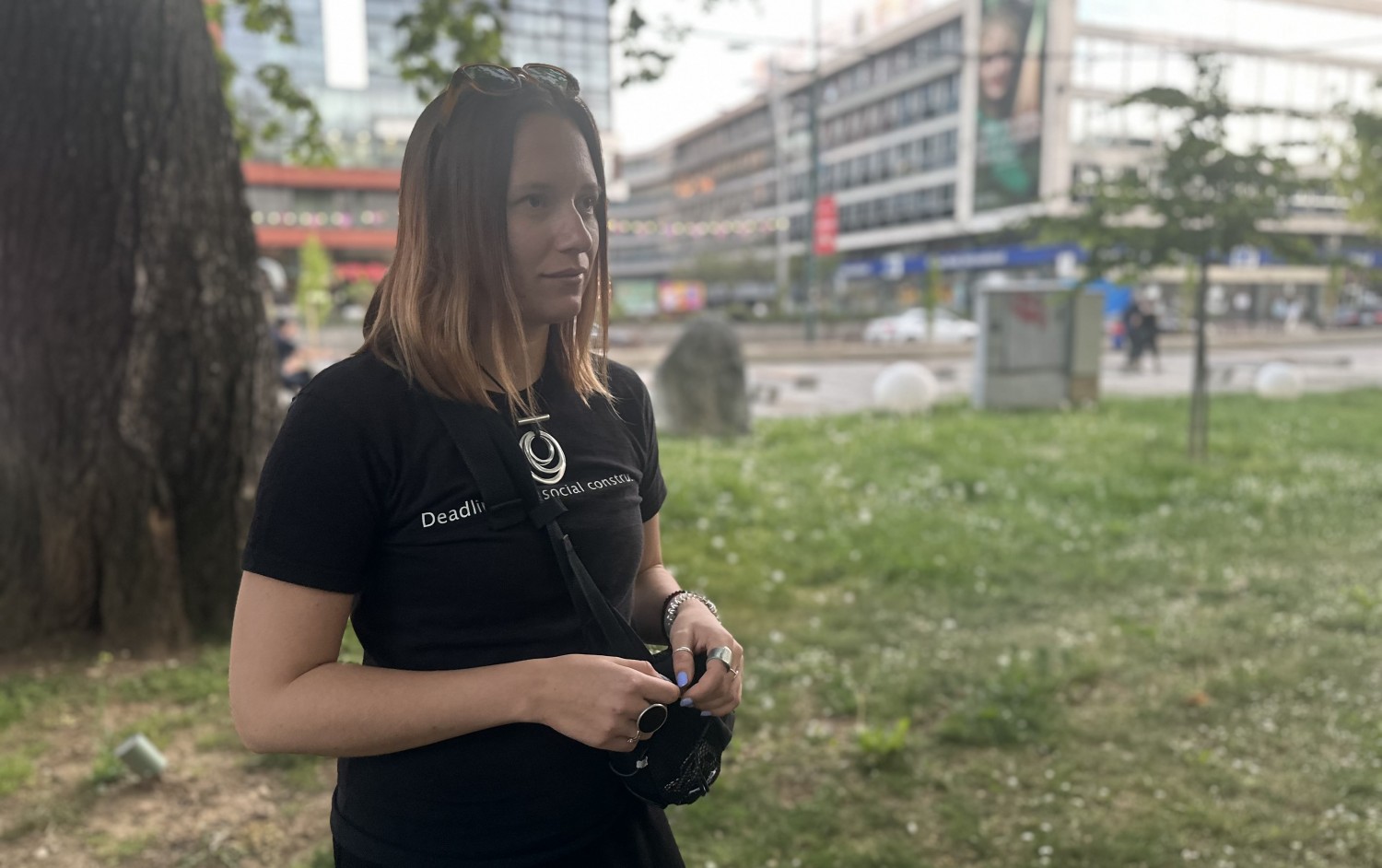
As we talk, high above us, we see an airplane leaving its distinctive white trails. Iryna and Tetiana take the opportunity to photograph it with their phones. "This is a symbol of freedom for us!" they explain, reminding us that due to the war, civilian aircraft do not fly over Ukraine.
Iryna continues to talk about life in Kyiv. She mentions that she rented an apartment in the centre of Kyiv, hoping that the air defence system would stop missile attacks in that part of the city, where many Western embassies are also located.
"But I am still afraid. There's the 'two walls' rule, a so-called safe space in the apartment if you don't have time or the opportunity to go to a shelter. But my apartment has windows everywhere, even in the bathroom. Still, I'm aware that if I stay in Kyiv, the place where I live could be shelled. Because of everything, I feel exhausted; Ukrainians are exhausted. Emotionally, above all", she says.
However, life in Kyiv differs from other cities, claim our interlocutors. Other cities are much more vulnerable to Russian missile attacks, especially those without any air defence system.
The worst situation is, of course, in the eastern part of the country, on and near the battlefields. Our other interlocutor, Tetiana, lived in the east until the full-scale Russian invasion. She spent her childhood in Izium and later moved to Kharkiv, where she lived and worked. Just before the Russian invasion, her family left Izium, while Tetiana first went to Kryvyi Rih and then to Kyiv.
"My whole family went to Germany. I stayed with my partner, and now we live as tenants in Kyiv", she tells us.
Tetiana greeted the news of the Russian forces withdrawing from Izium, and the city's liberation, with a smile on her face. When the situation stabilized, she went to visit her family house in Izium to see if and to what extent it was damaged.
"I was very surprised because the house remained relatively intact", Tetiana says, adding that her feelings soon changed with the reality that families in war-torn areas often face:
"At the beginning of the year, I wanted to go to the house again to pick up some things. But I was informed that some people were living in our house. It turned out they were soldiers. They entered the house and took the car out of the garage. They said they had the right to do so. Why did they do this? This might sound bad for Ukraine, but my father was a priest of the Russian Orthodox Church, which has always been subordinate to Russia. And they support the war. They told me they allowed themselves to take our house, that the local authorities allowed it because the house was empty and no one lived there. The options were either to live there, where I couldn't find a job or to sell the house to the authorities for a pittance. They said my father was a traitor because he was from the Russian Orthodox Church. However, he did not participate in the war; he did not help the Russian army. He just fled as soon as he had the chance to protect his life. I can't go back to my house now. I can't take my things, nothing. I understand that the military needs somewhere to live, but we can say that Izium is now a safe place, relatively far from the front line".
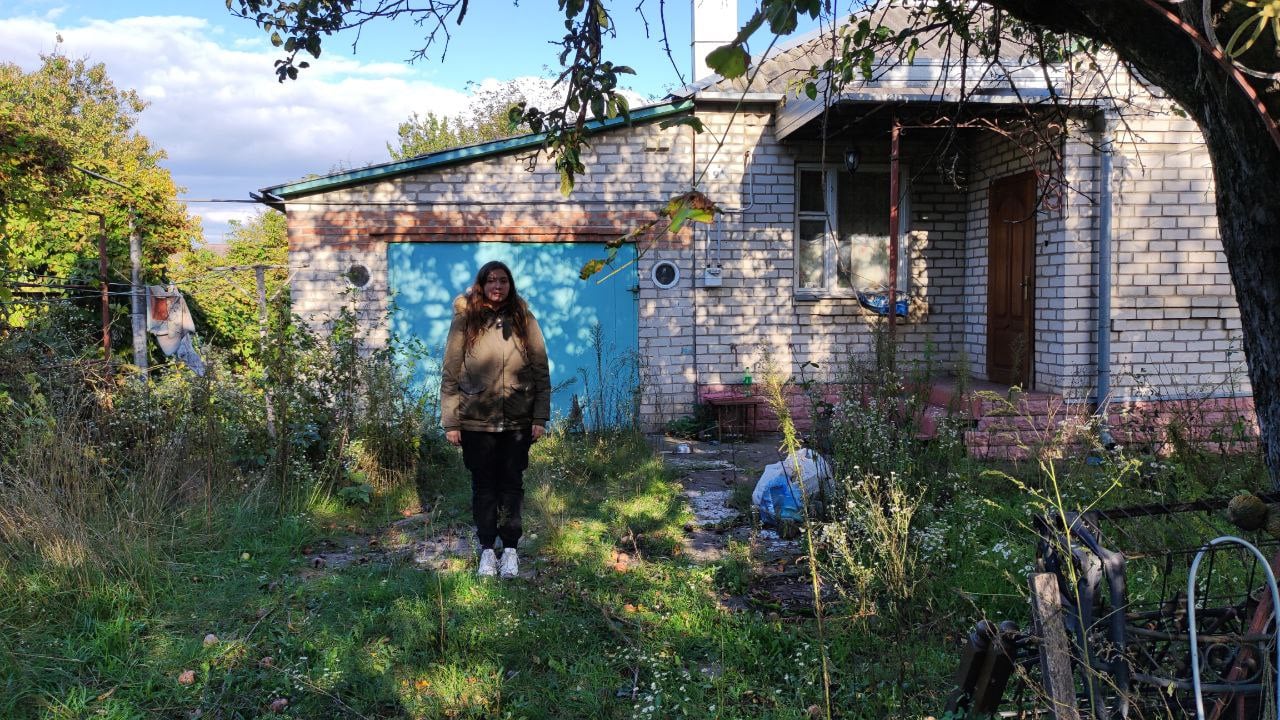
The war has left a mark on Tetiana. While living in Kryvyi Rih, Russian forces hit the city with cruise missiles, and she lived near the dam that was breached. Due to the explosions she witnessed, she now speaks of being fearful, and every missile attack triggers feelings of fear and anxiety in her.
"I am generally a very anxious person. Often, I can't sleep. I'm afraid of what might happen to me and feel a kind of pessimism about all of this. When I hear there will be a bombing, I can't calm down. I constantly think: if a missile hits the place where I live, then I most likely won't survive", she explains.
However, their male friends are in a much more difficult situation. Ukrainian President Volodymyr Zelensky recently signed several laws, including one that lowered the age for mobilization from 27 to 25 years. While many young Ukrainians volunteer to defend the country on the front lines, there are those who think differently, although no one will admit they are afraid.
"Even if they are afraid, they won't admit it. Some who really didn't want to be in the war have already left the country using various tricks. Some did it when it was allowed, some of them paid... Those I know try to find a place in the military but not on the front line. They want to show their professional skills and be useful behind the front line, connecting with the military's work – photographing, operating drones, creating navigation maps... Besides that, they train, read, and watch many videos. Some make drones at home, test them, and send them to the military. They also train by playing tutorial video games, an hour or two a day, simulating drone operations, so that in case of mobilization, they have a better chance of being assigned to those roles, not to the front line", says Iryna.
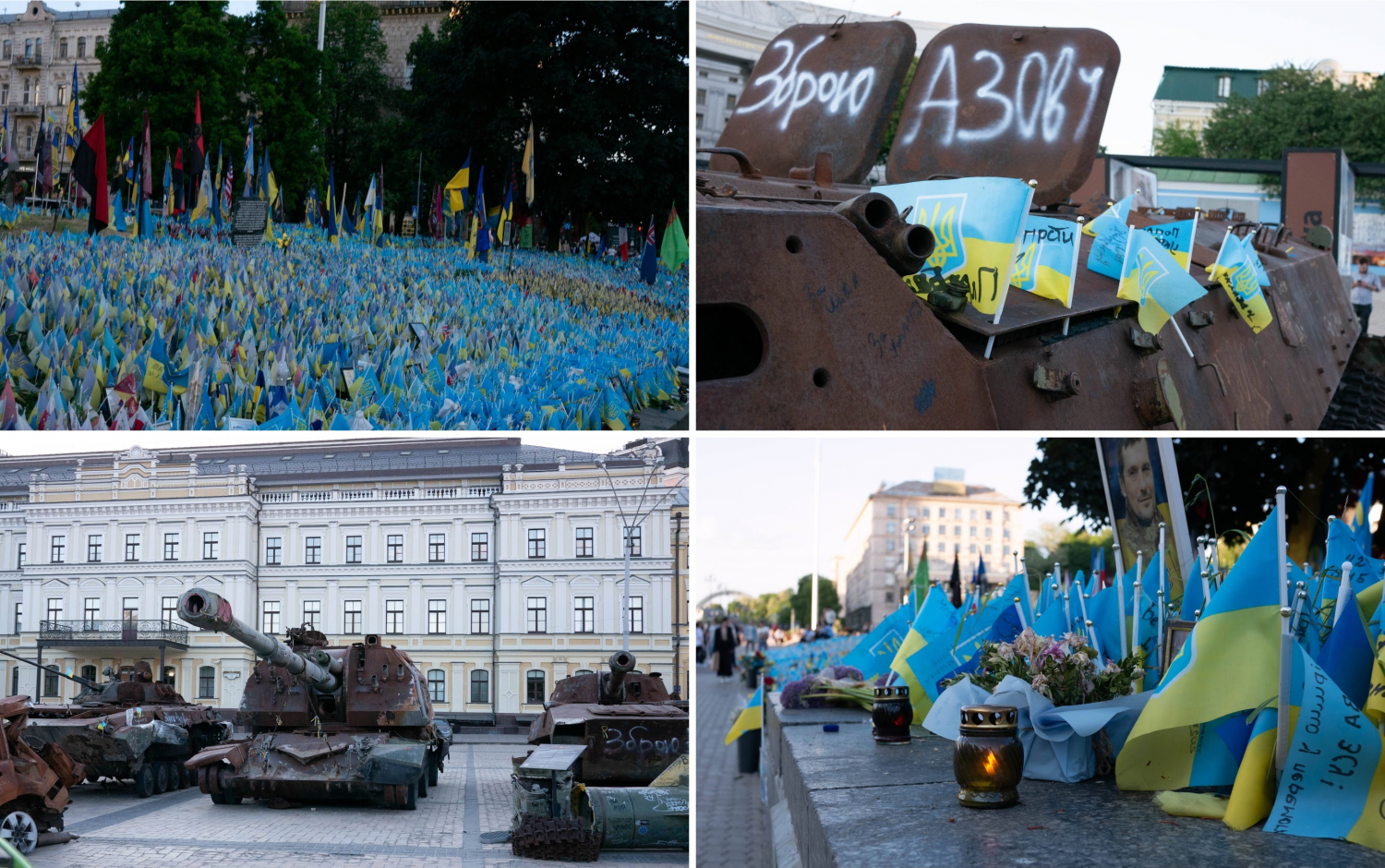
As we talk, we read the news about the situation in the Middle East. We comment on how much the world has changed since the start of the full-scale Russian invasion. Headlines now give less space to the war in Ukraine, with media attention more focused on places like Palestine. Additionally, in Western countries, there are people who oppose sending money or weapons to Ukraine.
Our interlocutors claim that such media coverage doesn't bother them too much, but they are concerned about other issues: "To be honest, we don't believe in media support. But we believe in the diplomacy that Ukraine needs and is building. We hope that will help. But, of course, there is a bit of panic. We've checked Telegram channels, and some soldiers and politicians are saying we should prepare for winter, plant something, prepare wood because we need to be ready for our partners to focus on their own problems".
When asked if they plan to leave the country, they answer negatively because both live with partners they do not want to leave.
"Even if I were to go somewhere, let's say Sarajevo, although I love how people live here, I'm not sure it could be my life. Of course, if it became too unsafe and risky in Ukraine, I might leave for a while", Iryna says.
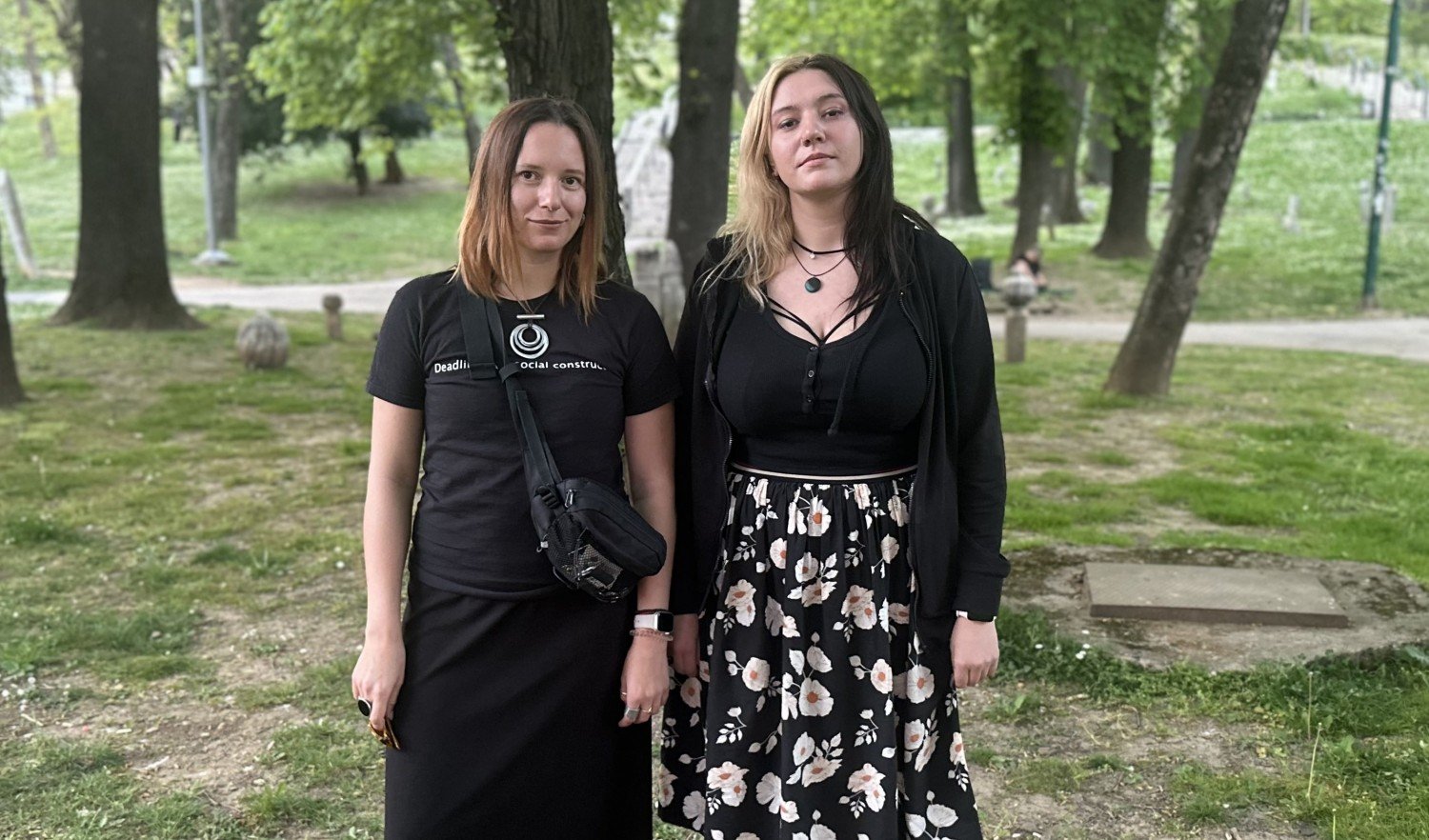
We didn't talk much about the future of Ukraine. Clearly, both want Ukraine to be a free, democratic country, modeled after Western states. But they find it difficult to talk about it because they still don't see an end to the war in sight. Like other young people from Ukraine, they believe in victory and hope for such an outcome of the war.
Before and during their stay in Sarajevo, Iryna and Tetiana read and learned a lot about Bosnia and Herzegovina and its capital. Especially about the war in the 1990s. The resistance of the people of Sarajevo during the siege left a special impression on them. They say it's very difficult to compare the war in Ukraine to the situation in Sarajevo during the war because they work in Kyiv, receive salaries, don't have significant shortages of food and water, occasionally experience power outages, go to cafes and restaurants... However, they claim, some lessons can be drawn.
"I feel that our experience and the experience of Sarajevans in a political context are different. But there is the experience of loss, the fact that your, so to speak, friends start killing you, those from whom you couldn't expect it, that's very similar. What could Ukrainians learn? They could learn to live in war and do everything for victory. Everyone, on their personal front. Because that's what people in Sarajevo did, and that's what we need to do now", Tetiana concludes.
(zurnal.info)





